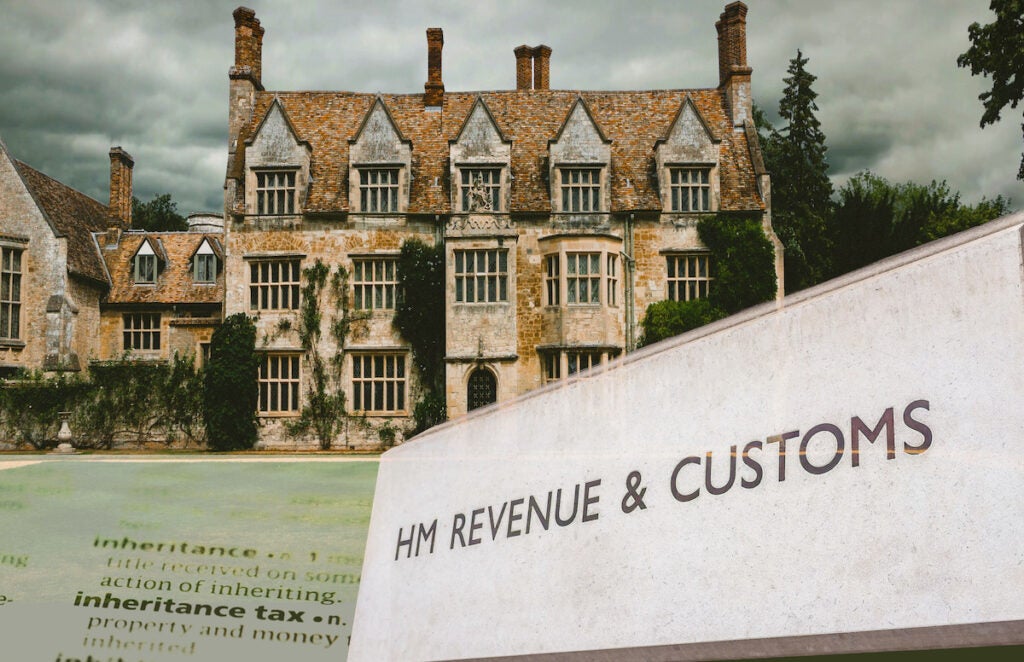
If you’re a HNW or a successful entrepreneur, it can be exciting to think about valuations and corporate finance — but it’s all too easy to forget about your personal tax needs. Estate planning, meanwhile, is particularly overlooked by many HNWs.
It therefore might be prudent to use the services of a personal tax adviser, who can help to demystify the process, or to work out if you have access to any tax reliefs, as you prepare for HMRC’s online self-assessment deadline on 31 January 2024.
When should you start planning your tax administration?
‘The longer you have on the lead in, the greater the chance of successful tax mitigation,’ Camilla Wallace, a leading tax lawyer and partner at Wedlake Bell, tells Spear’s.
Lizzie Murray, a tax partner within Saffery’s private client group, agrees that seeking early advice can save clients from stress down the line. ‘Keeping on top of filing requirements is always a good idea. And for clients wanting peace of mind over Christmas, they might want to think about doing their tax return in advance of the Christmas break, rather than leaving it until the January filing deadline.’
‘Don’t miss it, because if you do, not only are you going to pay interest, it does extend the period in which HMRC can investigate your affairs,’ Andrew Goldstone, of Mishcon de Reya, says of the importance of timely tax administration.
[See also: The non-doms planning to leave the UK to escape a Labour government]
Think about long-term tax planning, not just quick solutions
Clients can also fall into the habit of taking ‘immediate tax advice’ without thinking ‘further down the line’, Wallace says. But it’s important for HNWs to also keep an eye on their future arrangements – particularly if they are considering a big life change, such as relocating to the UK.
‘Some people will read about the non-dom regime and think, “oh that’s fine, I’ll just tick the box and it will all be okay”, but this is a major risk. Before you get to the UK, you may need to set up clean capital accounts or put in place an offshore trust or bond.’
The power of charitable giving
Tax advisers can also help HNWs to optimise their approach to philanthropy or charitable giving. One sensible measure would be to plan your giving for a yearly period when your income flows are higher, which could allow you to access tax reliefs.
‘If you have a client who has lots of income one year and none the next, you want to make sure they are matching their charitable giving with those high-income years,’ Murray affirms.

When your tax affairs span multiple jurisdictions
Tax advisers tell Spear’s that international HNW clients can be best supported when tax advisers in different jurisdictions are taking a joined-up approach to managing their affairs.
‘Some HNWs have their structures in America, where they have their powers of attorney (or “durables”), and that’s great. But when they come and relocate to the UK, they don’t realise that, absent any proper cross border advice and action, that power of attorney they have in the US is worthless, we don’t accept it,’ Wallace says.
‘If they were to lose capacity, we’ve got nothing in place. So, looking at estate tax and capacity planning cross border, we ask: where are your assets, what documents have you got in place, and what do you need in the UK to make sure you can access all the reliefs, and make sure the right people are appointed to do the appropriate jobs.’
As well as making sure your international private client advisers are ‘talking to each other’, Murray says that for clients who are paying tax in multiple jurisdictions, ‘it’s helpful to have tax returns filed in those overseas jurisdictions and the tax paid so that you get the credit in the same tax period.’
[See also: Trusts registrations soar as HMRC bureaucracy intensifies]
How to avoid paying double tax
‘Quite often, you can end up paying double tax, and unless you’ve been properly advised as to having the credit for one against the other, or claiming a refund in one of the countries, you could end up paying more than you need to,’ Goldstone adds.
It can also be useful to think about the different ‘windows of opportunity’ to sort out your tax affairs if you’re an international HNW moving to the UK, says Wallace. This could be pre-arrival — before settling in the UK — or it could be making a change to your arrangements before the new tax year begins on 6th April.
When non-doms need to act
Meanwhile, non-dom clients who have been in the UK for close to 15 years out of the last 20 may need to think about planning around becoming a deemed-domiciled individual — at which point they are treated the same as other UK residents for tax planning purposes. ‘These are windows of opportunity when you need to take tax advice to make sure that your structure is sound, and to give you the opportunity to put a structure in place,’ Wallace says.
[See also: Why using the ‘non-dom’ status might not be worth it for UHNWs]
Are HNWs preparing for the possibility of a new government?
Several high-profile tax advisers have told Spear’s that internationally mobile HNWs, many of whom have come to the UK to take advantage of its attractive non-dom regime, are now considering their options, including leaving the country altogether, should a Labour government be installed at the next election. An election is likely to take place either next Spring or Autumn, but it must be held no later than 28 January 2025.
If elected, Labour’s Rachel Reeves says her party will abolish the non-dom regime, replacing it with a tax scheme of a much shorter duration. Accordingly, David Lesperance, who advises clients on how they might move to different jurisdictions to take advantage of other non-habitual resident tax regimes, says that many UHNW individuals are considering ‘fire escape plans’ to exit the UK.

The onset of tax planning fatigue
However, other advisers say that clients have grown tired of overly-zealous preemptive tax planning. ‘I think clients got planning fatigue because of Covid,’ Murray says. ‘But we’ve had quite a few years of potentially big changes — a potential Corbyn government, Brexit, potential changes in CGT rates, IHT being abolished — all of those things have been talked about over the past few years, and to a certain extent, I think clients are quite bored of that, and are just waiting to see what will happen.’
‘It’s all speculative, but I think if you don’t even consider it now, you’re probably being naive. Because if Labour win, it is inevitable they will change the rules, particularly on the non-dom regime,’ Goldstone says. ‘If you keep your head in the sand, you will almost certainly lose an opportunity to do some planning, that may well survive any changes’.
[See also: The best accountants and tax advisers for HNW individuals in 2023]
How can HNWs get the best out of a tax adviser?
Seeking prompt advice is a surefire way to increase the value of a tax adviser. ‘What makes me most happy on a client mandate is being given the time to address the issue in an appropriate way,’ Wallace says.
‘It’s also really nice to have a client who is an open book, who’s listening, who will be advised, who will take advice, and who comes to us, certainly the tax year before, so we can get everything in apple-pie order for them. Once they get here, or once the event – whether it’s the sale of the business or the divorce – whatever it is, we’ll be in good shape.’
For Murray, meanwhile, trying to avoid ‘the last minute rush’ will allow clients to navigate important filing deadlines – including at the end of January. ‘The earlier you can provide information to your tax adviser, the more time they have to think about planning opportunities, and assisting with your wider affairs,’ she says.






